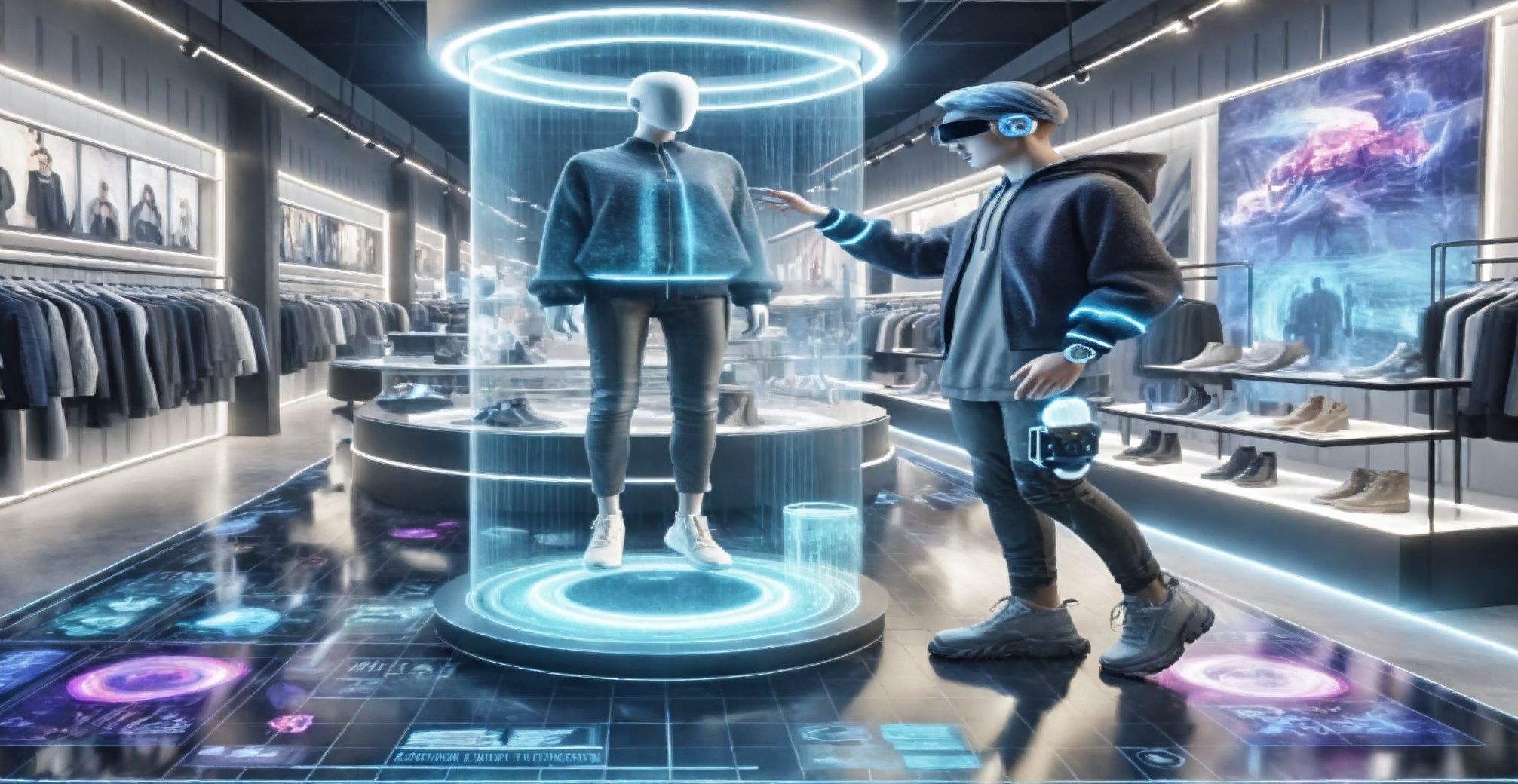The Phygital Revolution: Merging Realities in Fashion
Jul 8, 2024

Source: AI-generated image
In an age where technology and the physical world intertwine seamlessly, a new buzzword has emerged to describe this convergence: "phygital." The term, a fusion of "physical" and "digital," encapsulates the innovative approach to creating and experiencing fashion products that bridge the gap between the real and the virtual.
The Paradigm Shift in Fashion
Phygital is not just a concept; it represents a paradigm shift in the way we perceive and interact with fashion. The traditional retail model has undergone a transformation as brands leverage digital technology to enhance the physical shopping experience. From high fashion to streetwear, the industry has embraced this trend to create immersive and captivating encounters for its audience.
Experiential Retail
Central to the phygital movement is the concept of experiential retail. Physical stores are no longer mere points of sale; they have become curated spaces that provide an engaging journey for visitors. Augmented Reality (AR) and Virtual Reality (VR) technologies allow customers to virtually "try on" fashion items before making a purchase. This blurs the line between the online and offline worlds, giving shoppers a taste of the product's essence without setting foot in a dressing room.
Community Engagement and Anticipation
Moreover, fashion brands are using phygital elements to build anticipation and community engagement. The strategy of "drops" and limited releases has been amplified through digital platforms, especially in the streetwear sector. Brands create interactive countdowns and teasers on social media, generating excitement among followers. When the product is finally released, whether it's a physical garment or a virtual item, customers feel a sense of exclusivity and urgency that drives demand.
Examples of Phygital Implementations
For example, a leading streetwear brand might announce a new collection drop through an augmented reality experience available on their app. Fans can scan their surroundings to find virtual pop-up stores or digital collectibles, such as limited edition sneakers. These virtual items can be worn within certain immersive world platforms, showcasing the brand's presence in virtual spaces and providing a new form of self-expression for enthusiasts.
Some notable fashion brands pioneering in the phygital space include:
- Nike: Through its SNKRS app, Nike has integrated AR features that allow users to view and virtually try on limited-edition sneakers. Additionally, Nike has explored virtual sneakers that can be worn by avatars in various digital environments.
- Gucci: Gucci has been at the forefront of blending physical and digital experiences, offering virtual try-ons via AR and launching exclusive virtual items. Their collaboration with platforms like Roblox and their own virtual world, Gucci Garden, exemplify their commitment to the phygital approach.
- Balenciaga: Known for its innovative approach to fashion, Balenciaga has hosted virtual fashion shows and released digital-only collections. Their collaboration with the video game Fortnite to create in-game skins and physical merchandise is a prime example of their phygital strategy.
Collaborations Driving the Phygital Revolution
Collaborations between fashion brands, artists, and technology companies have also propelled the phygital revolution. Virtual fashion shows, where digital models strut down the runway in intricately designed garments, exemplify the boundary-pushing nature of these partnerships. The merging of creative forces results in groundbreaking experiences that resonate with both the physical and digital worlds. One notable example is Prown, a brand dedicated to bringing real and meaningful products into the immersive world in the shape of phygitals.
In conclusion, the term "phygital" now encapsulates the captivating blend of physical and digital realms that defines the evolution of fashion products. Experiential retail, AR/VR technology, virtual collectibles, and innovative collaborations are reshaping how consumers interact with and perceive fashion. As the phygital revolution continues to gain momentum, spearheaded by pioneers like Prown, it invites us to reimagine not only how we shop for fashion but also how we engage with the creative culture that defines it.